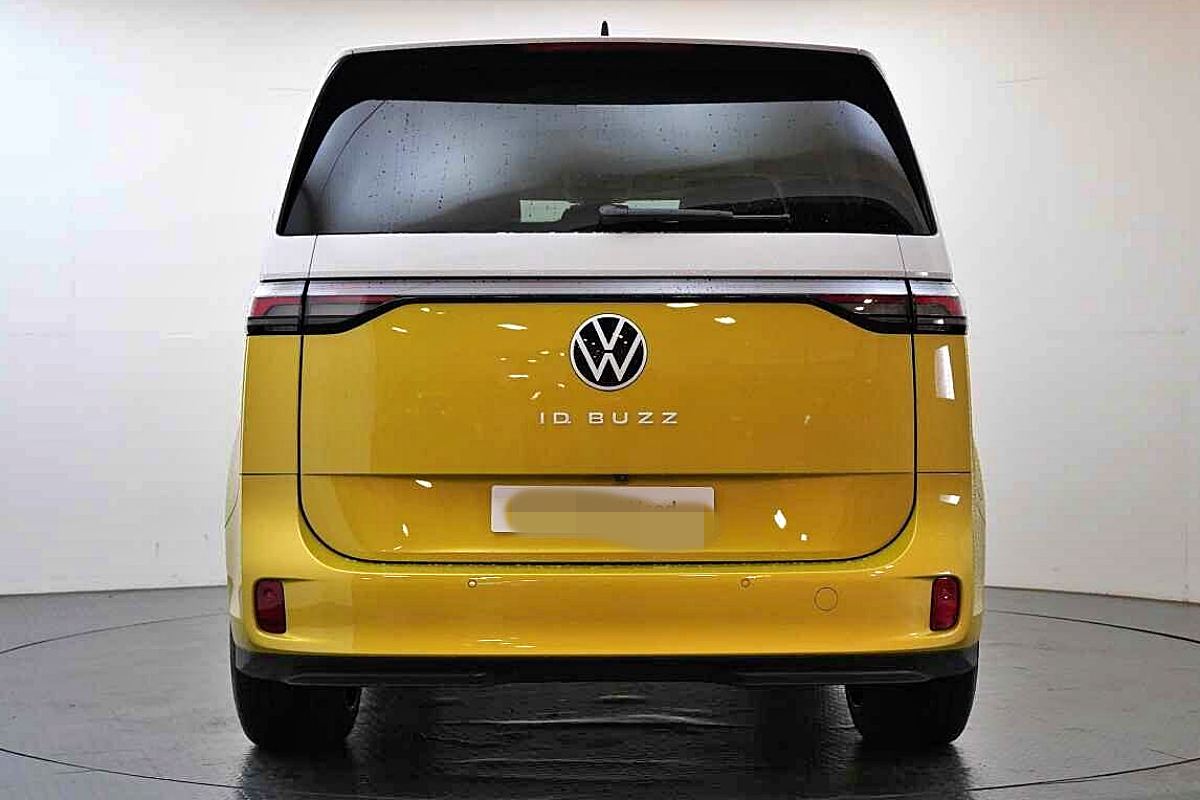
Volkswagen is recalling approximately 5,700 ID. Buzz electric minivans in the United States—not for a drivetrain or electrical fault, but due to a compliance issue involving the third-row seating configuration.
The recall, issued in coordination with the US National Highway Traffic Safety Administration (NHTSA), stems from a mismatch between the seating capacity implied by the interior dimensions and the number of seat belts in the third row. The vehicle is designed for two rear passengers. Still, the available space suggests three people could be seated, despite only two seat belts, violating US federal safety standards.


Design Versus Regulation: A Seat Width Dilemma
The ID. Buzz’s third-row seats are somewhat narrower than the standard minivan seats, with a waist space of 122 cm (48.0 inches) and shoulder space of 135 cm (53.1 inches). However, the seating area is more spacious than expected, and consumers have responded that up to three people can sit in a space designed for two. As a result, it has violated the federal law that requires seats with the same number of seat belts as the number of people who can ride in them.
The US seat regulations are strict. Three seat belts must be installed if the seat width exceeds about 140 cm (55.1 inches) or the space per seat is more than 37.6 cm (14.8 inches). This is a narrower figure than some low-cost airline seats, and even a small design error can lead to legal risks for manufacturers. Some say that this recall can be recorded as an example of the precision of US automobile regulations beyond the space interpretation dimension.
Volkswagen plans to carry out free vehicle repairs subject to the recall. Specifically, the plan is to add physical finishing materials to the third-row seats to narrow the seating space and change the structure so that only two people can sit in it. In other words, while three people can actually sit, the measure of preventing them from sitting down ensures regulatory compliance while maintaining the vehicle’s original configuration.



Remedy: Physical Modifications to Restrict Seating Space
To address the issue, Volkswagen will modify affected vehicles free of charge. The remedy includes adding structural inserts and trim materials to restrict usable seating space, ensuring that only two passengers can be seated in the third row. This approach allows Volkswagen to maintain the original seat design while preventing regulatory violations through physical limitations.
Volkswagen emphasized that no injuries or accidents related to the seating issue have been reported. The recall affects ID. Buzz units sold through the end of 2024, those released in early 2025, and all current U.S.-spec inventory. Models sold in Europe and South Korea are not affected.
A Case Study in Regulatory Precision
Volkswagen has acknowledged that the issue resulted from misinterpreting US seating regulations. While the design intent was clear, the actual usability of the space created ambiguity under federal law. The incident highlights how seemingly minor spatial discrepancies can lead to significant compliance challenges, especially in markets with stringent safety standards like the US.
Industry observers view this case as a reminder that regulatory design compliance now extends beyond mechanical systems to encompass cabin layout, dimensional tolerances, and user perception. For global manufacturers, the complexity of navigating regional safety laws—particularly in the growing electric vehicle segment—has become an operational priority.
As the ID. Buzz prepares for a broader global rollout, and Volkswagen says it conducts further internal reviews to ensure alignment with local regulations across future markets. The case underscores the need for enhanced regulatory foresight, especially as brands expand their EV offerings to meet diverse international standards.
























